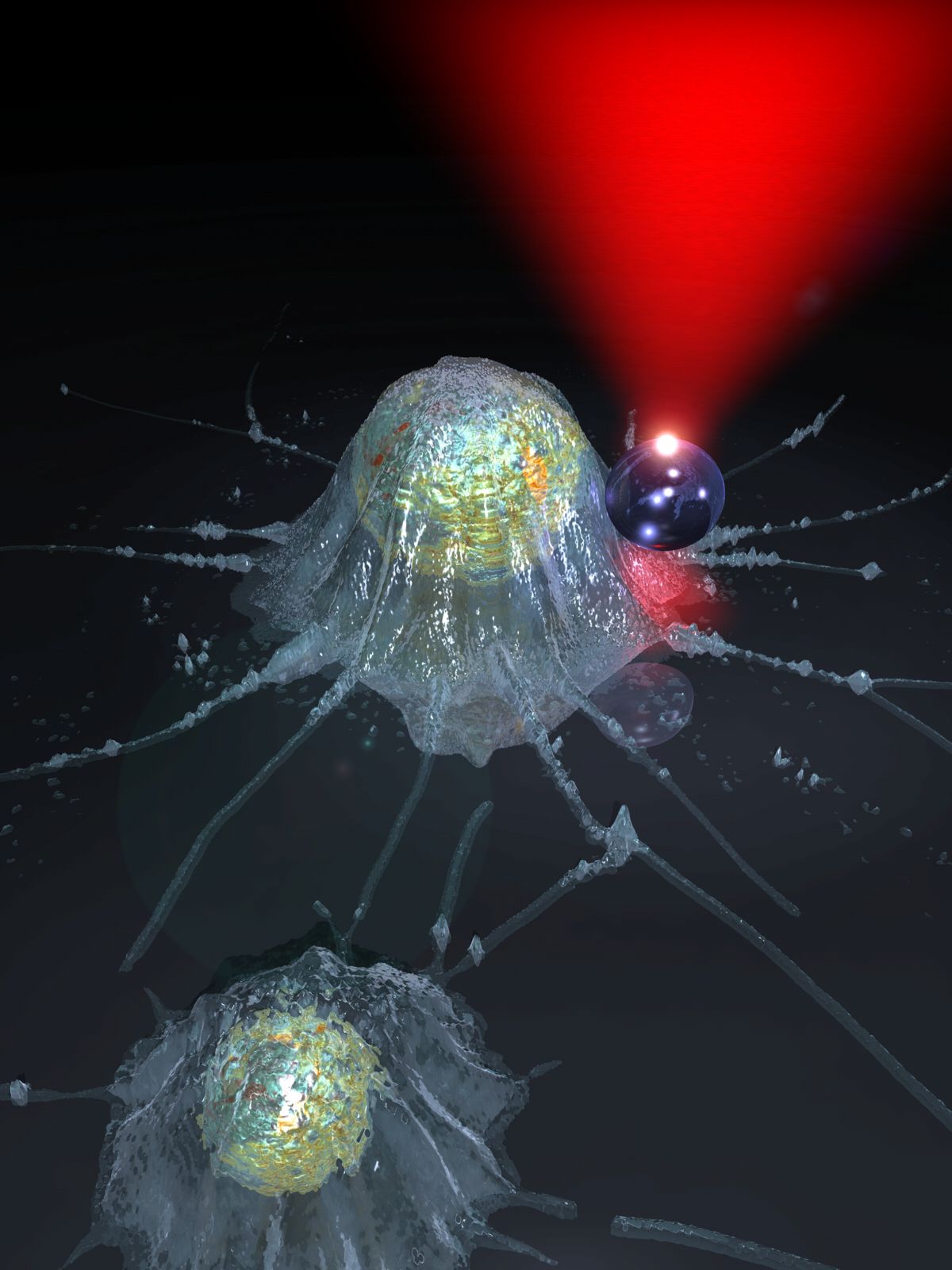William H. Guilford, Ph.D.

About

My research goal has long been to understand the molecular mechanisms by which cells move. My lab measures the mechanics of these processes at the level of individual molecules using a laser trap - a tool that can capture small translucent particles and hold them in three-dimensional space (see image). The laser trap may also be used to measure the elasticity, distance moved, or force generated by single protein molecules. We have used the laser trap to study the movement of the intracellular pathogen Toxoplasma gondii. My lab was the first to measure the biomechanics and coordination of molecular motors inside a living cell. Past achievements include revealing that the molecular motor myosin is directly regulated by the gaseous signaling molecule nitric oxide, demonstrating that myosin forms "catch bonds" with actin - getting stronger the harder you pull - and showing the fundamental limits and biases of single particle tracking algorithms.
I also enjoy working with students and physicians to design novel clinical devices and to use engineering to help solve fundamental clinical problems. This includes working with physicians in Infectious Disease to design means for understanding and preventing the spread of pathogens within patient populations. My most recent work with students touches on problems in women's health, including vaginal prolapse and pre-term labor, and on the problem of non-invasively measuring bilirubin in jaundiced babies regardless of skin tone.
Finally, I am fascinated by human learning and I am committed to using knowledge from scholarship of teaching and learning to improve instruction. My most recent work has been to study career self-concept among biomedical engineering students, and to learn when and why it changes between career aspirations for engineering versus career aspirations for medicine.
I currently serve as Associate Dean of Undergraduate Affairs in the School of Engineering. In this role I seek to advance the use of high-impact practices, to advance curricula suitable for the 21st century, to inspire students to engage outside of the classroom, and to support students in all ways to achieve their goals.
Education
University of Saint Francis
University of Arizona
University of Vermont
Research Interests
Selected Publications
Evangelista AM, Rao VS, Filo AR, Marozkina NV, Doctor A, Jones DR, Gaston B, and Guilford WH.
Stadler RV, White LA, Hu K, Helmke BP, Guilford WH.
Laib J, Marin J, Bloodgood R, Guilford W.
Guo B, Guilford WH.